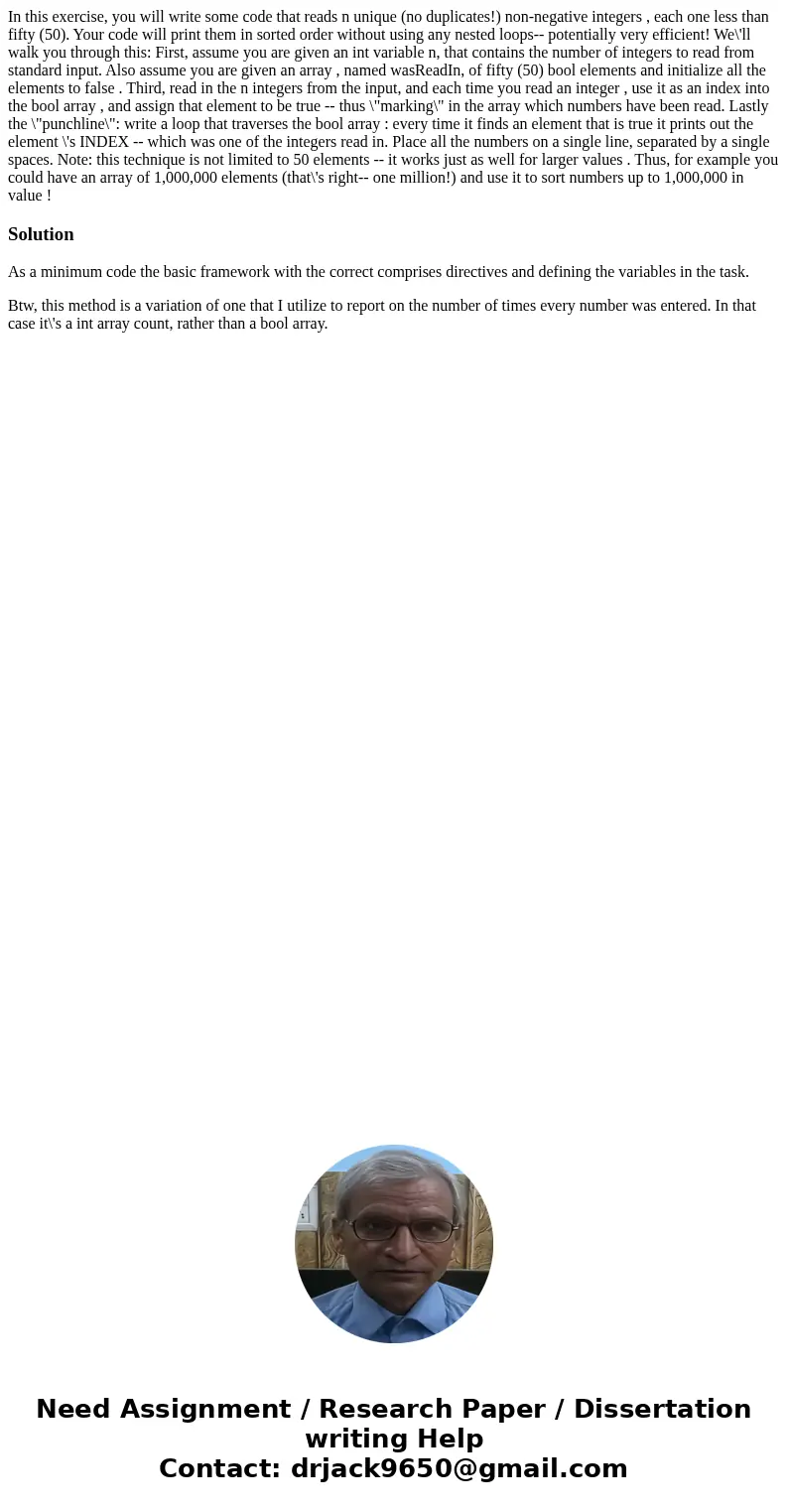In this exercise you will write some code that reads n uniqu
In this exercise, you will write some code that reads n unique (no duplicates!) non-negative integers , each one less than fifty (50). Your code will print them in sorted order without using any nested loops-- potentially very efficient! We\'ll walk you through this: First, assume you are given an int variable n, that contains the number of integers to read from standard input. Also assume you are given an array , named wasReadIn, of fifty (50) bool elements and initialize all the elements to false . Third, read in the n integers from the input, and each time you read an integer , use it as an index into the bool array , and assign that element to be true -- thus \"marking\" in the array which numbers have been read. Lastly the \"punchline\": write a loop that traverses the bool array : every time it finds an element that is true it prints out the element \'s INDEX -- which was one of the integers read in. Place all the numbers on a single line, separated by a single spaces. Note: this technique is not limited to 50 elements -- it works just as well for larger values . Thus, for example you could have an array of 1,000,000 elements (that\'s right-- one million!) and use it to sort numbers up to 1,000,000 in value !
Solution
As a minimum code the basic framework with the correct comprises directives and defining the variables in the task.
Btw, this method is a variation of one that I utilize to report on the number of times every number was entered. In that case it\'s a int array count, rather than a bool array.

 Homework Sourse
Homework Sourse